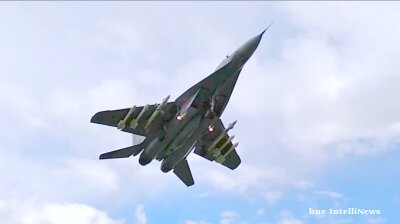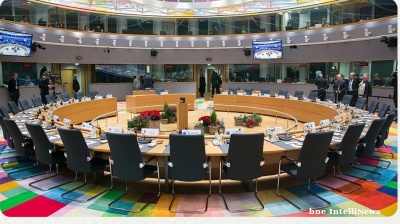Taiwan has pledged to deepen technological cooperation with Guatemala as the self-ruled island races to shore up diplomatic support against Beijing's relentless campaign to isolate it internationally.
President Lai Ching-te promised to "strengthen exchanges and cooperation as well as scholarship programmes for young people, provide training for high-tech and information and communication talents so as to push forward prosperity and development" during a June 5 meeting with his visiting Guatemalan counterpart Bernardo Arévalo, as reported by AP.
The pledge underscores Taiwan's increasingly desperate efforts to retain its dwindling band of diplomatic allies, now numbering just 12 countries worldwide. Guatemala represents Taipei's final foothold in Central America, a region where China has systematically poached Taiwan's partners with promises of large-scale infrastructure investment under the framework of the Belt and Road Initiative.
President Arévalo identified public health, education, agriculture, technology and infrastructure as key areas where Guatemala was seeking to build capacity.
In an interview with Taiwan's state news agency CNA, he described the trip as an opportunity to take the decades-old relationship “to the next level” by tightening economic and commercial ties.
The president said both governments are exploring enhanced cooperation in the semiconductor and high-tech industries, areas he believes are key for Guatemala’s future development. “We believe that we can follow Taiwan's very unique and important experience in building its own way into the high-tech industry,” he stated.
The rivalry reflects a stark asymmetry in resources and approach. While Taiwan offers modest, targeted assistance constrained by parliamentary oversight, China deploys what critics call "chequebook diplomacy,” promising highways, railways and stadiums that countries often struggle to repay at commercial rates.
Taiwan's more measured approach stems partly from its democratic constraints, where all spending requires legislative approval, but also reflects its positioning as a model of successful democratic governance in an era of rising authoritarianism.
However, Beijing has steadily chipped away at Taiwan's diplomatic recognition, successfully wooing countries such as Peru and Costa Rica in recent campaigns across the Caribbean and Central America. Each defection brings China closer to its strategic goal of complete diplomatic isolation for Taiwan, which Beijing believes will demoralise the island's population and facilitate "peaceful reunification".
China's foreign ministry responded swiftly to Arévalo's Taiwan visit, with spokesman Lin Jian declaring on June 6 that "recognising the one-China principle and developing relations with China align with the fundamental interests of Guatemala and its people,” according to Xinhua.
Lin dismissed Taiwan's diplomatic efforts as "self-deceptive theatrics that cannot stop the overriding historical trend toward China's reunification," pointing to Beijing's diplomatic ties with 183 countries as strong evidence of international consensus.
Guatemala's loyalty carries particular significance given its population of 17mn, making it one of Taiwan's largest remaining allies. The Central American country's continued recognition provides Taiwan with a crucial platform in international forums where diplomatic allies can advocate on its behalf.
But the stakes extend beyond symbolism. Each remaining ally represents a potential vote in international organisations and a voice in global forums where Taiwan otherwise faces systematic exclusion due to the overwhelming predominance of the “One China” policy, de facto adopted by most countries worldwide including the US, which regards the People's Republic of China as the legitimate government.
For Guatemala, the choice between Taiwan and China involves weighing immediate infrastructure needs against longer-term strategic considerations, including the island's technological expertise and democratic credentials that may prove valuable as global supply chains diversify away from Beijing. Yet resisting China's growing regional influence and rejecting its lucrative infrastructure offers will become increasingly difficult, as the US becomes more isolationist and slashes foreign aid programmes under the Trump administration.
News

Explosion kills five at Afghan-Pakistan border migrant camp
The blast struck on the evening of September 18 evening in Chaman, a Pakistani border town, at a taxi stand where Afghan migrants and local residents had assembled.

Estonia’s foreign minister summons Russia’s chargé d’affaires over 12-minute incursion in Estonia’s airspace
Estonia's Ministry of Foreign Affairs on September 19 summoned the chargé d’affaires of the Russian Federation in Estonia to lodge a protest for an "unprecedentedly brazen" violation of Estonia’s airspace after three MiGs entered its airspace.

China rejects US "bullying" over Latin American partnerships
China has once again rejected American efforts to pressure Latin American nations into reducing ties with Beijing, with a foreign ministry spokesperson asserting the region's right to choose its own development partners independently.

EU passes nineteenth sanctions package, accelerates LNG phase out
The European Commission has published proposals for a 19th sanctions package against Russia that would tighten curbs on energy trade and payments, with new measures aimed at oil refineries, oil traders and petrochemical companies in third countries.

_Cropped.jpg)
_1758207765.jpg)
